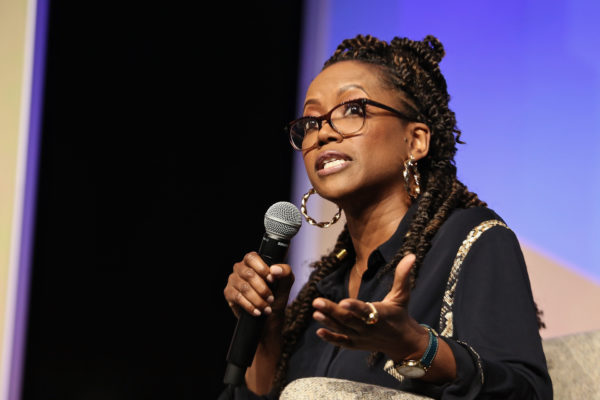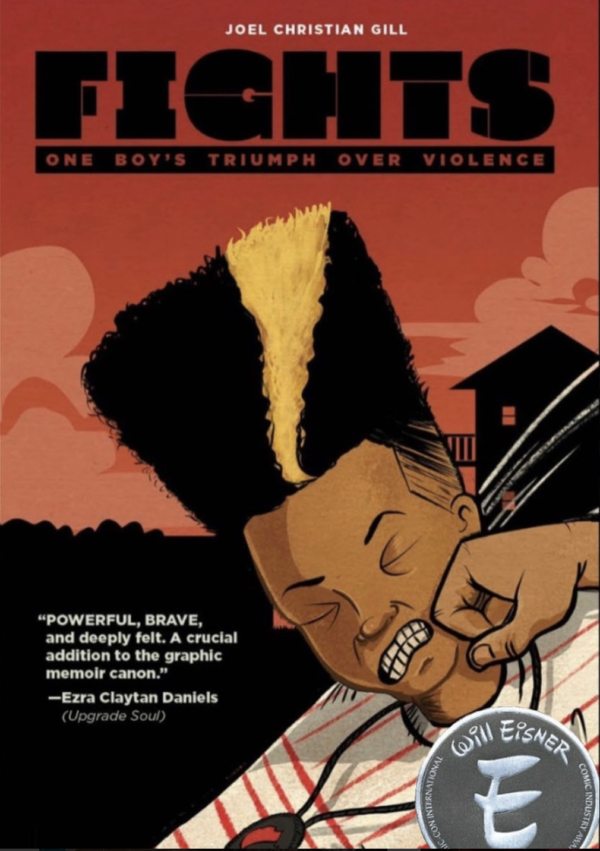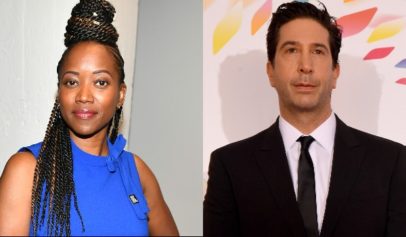Actor, writer and civil rights activist Erika Alexander was a regular cast member on popular TV shows like “The Cosby Show,” and “Going to Extremes,” but it was her role as Maxine Shaw on “Living Single” that made her well known in the 1990s.
ABS had the opportunity to speak with Alexander about her acting career, how she decided to collaborate with her ex-husband in writing a sci-fi graphic novel that is now an NFT, and how we all have to work together to change the lens for all in regards to civil rights and racial equality.

“Living Single” is a sitcom about a group of friends who share a brownstone in New York. While it seems like a simple concept, the show has been revered as on of the best ’90s sitcoms due to the dynamic characters, actors comedic timing, and relatability.
“I had already come from the biggest show on TV, which was ‘Cosby.’ It was an amazing experience [with] all of these people that were in my peer group. We didn’t know what it would become but when we first debuted, it was rated the number one Black show on TV, which was significant,” Alexander said.
The cast had chemistry, varied talent, and gumption and it was a recipe for success. “As for the initial experience, along with instant chemistry, we were very independent and individual, very outspoken for ourselves and very hard-working,” she said.
“We had already achieved some significant success inside of the world whether it was [Queen] Latifah with her rap or Kim Fields with her acting, who was the veteran on set. I’d been acting since I was 14. so I have been acting for some time, almost 10 years before that. Kim Coles with her comedy and John [Henton] with his comedy and T.C. [Carson] with his singing, Broadway, and films.”
Although “Living Single” was a hit, it was not evident to the cast at the time, and the rival network, NBC, did end up doing what was very seemingly a white-washed version of “Living Single” when the pilot of the hit TV show “Friends” debuted the following year in 1994.
“Why is that comparison appropriate? Our producers were the same. It was six young people in their career in New York. I think that that’s enough of a comparison to have a conversation about what I like to call the ‘cultural ghetto,’ ” she said.
“It’s the same and not the same. It’s the same because of the whiteface. Since we are the original I don’t call us the blackface. They certainly white-washed it and I think that that happens in art. You know that if you get something successful you can make a version of it again but the thing about it is that they thought they had to make it again.”
“That they thought it wasn’t sufficient. That it could be done again, but that is the plight of Black, African-Americans. … Everything is reproduced in a white package because it supposedly is going to get a bigger market. But to me, if the thing exists itself, why can’t branding and marketing support the thing that it is? Because we live in a world that is segregated and it’s very segregated in TV.”
Nothing can stop Alexander from accomplishing her goals, and in collaboration with her ex-husband Tony Puryear she has written and created “Concrete Park,” a graphic novel that is a sci-fi spectacular.
The most recent development for “Concrete Park” has been a collection of NFTs, which stands for non-fungible token, which means each NFT is a digital asset whether that be a drawing, song, animated GIF, or items in video games.
They are designed to represent ownership of a unique virtual item. An NFT designed specifically for a graphic novel is just another step in making the art from the novel valuable. It is the digital equivalent of a collection of baseball cards. There are only so many created and once they’re sold, they’re gone.
“I compare them to a limited edition of art prints. Each is numbered and signed and each NFT has its individual fingerprint. And the reason why people like them and they’re prized is that they’re rare. So you’re buying something directly from the artist you like.

Photo: erikaalexanderthegreat/Instagram
“We did our own generative avatar project called ‘Bangers.’… So we think it’s an innovative way to spread the word about our story world. We think every generation undergoes a transformation, so we think if the impressionists and people who were cubists and surrealists had to be challenged with the representational art of photography, this is us saying that we take up the challenge of digital art. … It’s the first officially licensed generative art NFT project in the graphic novel space…We did it out of love for the book that we created,” Alexander said.
Generative art NFT’s are on-demand digital art created by a computer script that is programmed by the artist.
It has received so much attention in the past few years that the duo have decided to create NFTs from the novel. The collection has since been sold out, but by putting the story in this form, it creates a lasting impact, meaning that they will be valued like a rare piece of art because that is exactly what they are.
More Stories from Our Partners:
Simone Biles Is Time’s Athlete Of The Year And A Mental Health Advocate, Both Things Can Be True

